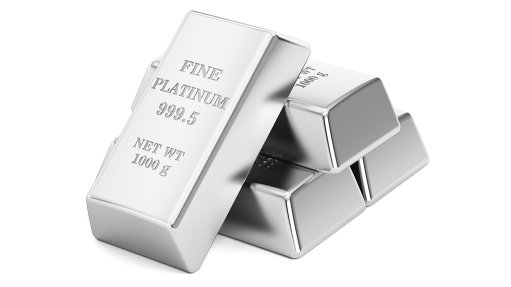Necsa plans to restart nuclear pebble-fuel production
The South African Nuclear Energy Corporation (Necsa) is reactivating its ability to manufacture nuclear pebble fuel, originally created to support South Africa’s Pebble Bed Modular Reactor (PBMR) programme. The corporation is also looking for a strategic equity partner for its speciality fluorochemical products manufacturing subsidiary, Pelchem, and, further, is planning to expand its engineering and manufacturing division (not subsidiary), Pelindaba Enterprises. These plans were reported by Necsa CEO Phumzile Tshelane at a recent media briefing at Pelindaba.
“We are taking our PBMR fuel manufacturing and test laboratories out of care and maintenance,” he told Engineering News afterwards. “There are potential customers outside the country that are looking for this fuel. We’ve had enquiries from the US, Indonesia and Russia.” The reactivating of the laboratories will cost about R50-million and should be completed by the second half of next year. At the moment, no extra staff will be required to operate them; current Necsa staff are being reassigned to do so.
“The plan is, once we are back creating and testing the fuel, to increase the amount we can produce to commercial levels,” he said in the interview, “[and] re-establish our capability and then go commercial!” Necsa will be producing the spherical geometry coated fuel particles, not other modular fuel shapes. To fulfil this ambition, the corporation requires a firm order for pebble fuel by, again, the second half of next year. “We are confident we will get one.
“No one outside China is currently constructing a PBMR,” he observed to Engineering News. “But there are designs in the US, supported by the [US] Department of Energy. At least one of these designs is likely to be built in the short term. It would most likely be a demonstration plant, not just laboratory scale. The interest from the US in pebble fuel from Necsa is very strong.”
Regarding Pelchem, this subsidiary manufactures key inputs for the petrochemicals, automotive, domestic products and cosmetics industries, among others. “It is currently making a loss,” he stated. “We are looking for a strategic partner who can bring in both commercial and additional technical expertise. We would like to obtain such a partner as soon as possible.” The partner could be a local or overseas company. As yet, there is no shortlist of potential partners, but Tshelane expects to have such a shortlist by the end of November. “We’ll formally announce the process in the next month or so.”
Necsa keeps certain units of Pelchem operating, despite them being lossmakers, in order to preserve national technological capabilities. “If we shut down these units, Pelchem becomes profitable,” he pointed out. “But the country would lose its capability in complete technology sectors. It is the duty of Necsa to preserve these technologies, as well as make money.”
As for Pelindaba Enterprises, that does make a profit. But, because it is a division and not a subsidiary, the exact extent of that profit has not yet been calculated. “But we will soon do so.” The division manufactures a significant range of products to fully certified nuclear standards. These include (but are not limited to) pressure vessels, piping systems, uranium hexafluoride cylinders, and nuclear fresh fuel and spent fuel containers.
The company supplies Eskom, and not just for the Koeberg nuclear power plant. It has also supplied components to the new Medupi coal-fired power station. Further, it exports to Russia and South Korea. “Pelindaba Enterprises expands as it wins tenders,” he explained. “We have the potential to supply another client in another country. This is potentially a big order.
“Domestically, we plan for it to be the incubator of the localisation of the new nuclear energy build programme,” he highlighted. In the press conference, he also pointed out that the division had a fully nuclear certified design competence “that is growing”.
Article Enquiry
Email Article
Save Article
Feedback
To advertise email advertising@creamermedia.co.za or click here
Press Office
Announcements
What's On
Subscribe to improve your user experience...
Option 1 (equivalent of R125 a month):
Receive a weekly copy of Creamer Media's Engineering News & Mining Weekly magazine
(print copy for those in South Africa and e-magazine for those outside of South Africa)
Receive daily email newsletters
Access to full search results
Access archive of magazine back copies
Access to Projects in Progress
Access to ONE Research Report of your choice in PDF format
Option 2 (equivalent of R375 a month):
All benefits from Option 1
PLUS
Access to Creamer Media's Research Channel Africa for ALL Research Reports, in PDF format, on various industrial and mining sectors
including Electricity; Water; Energy Transition; Hydrogen; Roads, Rail and Ports; Coal; Gold; Platinum; Battery Metals; etc.
Already a subscriber?
Forgotten your password?
Receive weekly copy of Creamer Media's Engineering News & Mining Weekly magazine (print copy for those in South Africa and e-magazine for those outside of South Africa)
➕
Recieve daily email newsletters
➕
Access to full search results
➕
Access archive of magazine back copies
➕
Access to Projects in Progress
➕
Access to ONE Research Report of your choice in PDF format
RESEARCH CHANNEL AFRICA
R4500 (equivalent of R375 a month)
SUBSCRIBEAll benefits from Option 1
➕
Access to Creamer Media's Research Channel Africa for ALL Research Reports on various industrial and mining sectors, in PDF format, including on:
Electricity
➕
Water
➕
Energy Transition
➕
Hydrogen
➕
Roads, Rail and Ports
➕
Coal
➕
Gold
➕
Platinum
➕
Battery Metals
➕
etc.
Receive all benefits from Option 1 or Option 2 delivered to numerous people at your company
➕
Multiple User names and Passwords for simultaneous log-ins
➕
Intranet integration access to all in your organisation


















